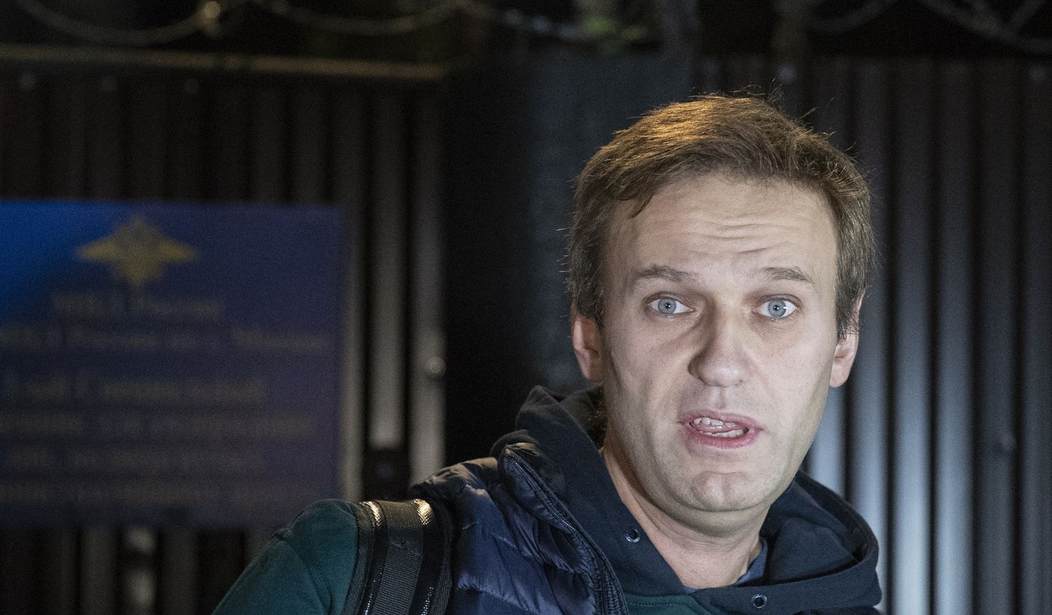Moscow might have a snazzy subway system and cool grocery stores, but there is one thing it does not have: respect for human rights. Over the weekend, Russian authorities cracked down on individuals mourning the death of dissident Alexei Navalny, a leading critic of the Kremlin. Over one hundred people have been detained or arrested for attending events honoring him.
Navalny’s death ignited a wave of grief and outrage across the nation and the world. Unfortunately, it wasn’t enough for Navalny to lose his life; Russia’s government won’t even allow Russians to mourn for him.
Russian courts have sentenced dozens of people detained at events commemorating Kremlin critic Alexei Navalny to short prison sentences, official court announcements showed, with 154 sentenced in Saint Petersburg alone.
Details of rulings published by the city’s court service on Saturday and Sunday showed 154 people had been given jail time of up to 14 days for violating Russia’s strict anti-protest laws.
Rights groups and independent media outlets reported a handful of similar sentences in other cities across the country.
Police over the weekend arrested hundreds of Russians in dozens of cities who came to lay flowers and light candles in his honour at memorials to victims of Stalin-era repressions.
Anti-Kremlin demonstrations or public shows of opposition to the regime are effectively illegal in Russia under strict military censorship rules and laws against unapproved rallies.
The wave of detentions and the deafening silence of the Kremlin highlight the deepening chasm between the state and its critics, especially at a time when Russian President Vladimir Putin is poised to start another term in office.
News of Navalny’s demise rippled through Russian cities, which prompted hundreds of citizens to lay flowers and light candles in remembrance of their fallen hero. However, their actions wound up revealing the reason why Navalny was a critic of the government in the first place.
The police scoured areas of Russian cities to find people commemorating Navalny’s death and honoring his memory to disrupt them and arrest citizens.
Police and men in plain clothes patrolled sites in dozens of Russian cities where people had gathered to commemorate Navalny over the weekend.
There were several reports of them removing the pop-up memorials overnight, and footage showed hooded men scooping up flowers into bin bags on a bridge next to the Kremlin where another leading Putin critic, Boris Nemtsov, was killed in 2015.
On Sunday, it was reported that Russian authorities told Navalny’s mother that he died of “sudden death syndrome,” which raised even more suspicons about the true cause of his death.
Now, it has been reported that the Russian government told Navalny’s mother that he died from “sudden death syndrome.”
Alexei Navalny’s mother was told on Saturday that Russia’s most prominent opposition leader had been struck down by “sudden death syndrome” and that his body would not be handed over to the family until an investigation was completed, his team said.
Navalny, a 47-year-old former lawyer, fell unconscious and died on Friday after a walk at the “Polar Wolf” penal colony in Kharp, about 1,900 km (1,200 miles) northeast of Moscow, where he was serving a three-decade sentence, the prison service said.
Sudden death syndrome is described as “a vague term for different cardiac syndromes that cause sudden cardiac arrest and death.”
The crackdown on mourners and protesters underscores the precarious state of free speech and political dissent in Russia. It sheds even more light on the Russian government’s opposition to human rights and its willingess to use force to prevent dissent.
RELATED:
Alexei Navalny's Death in a Prison Camp Was a Message From Putin to the World and to Russia
Biden Once Threatened 'Devastating Consequences' for Russia if Alexei Navalny Died in Prison














Join the conversation as a VIP Member